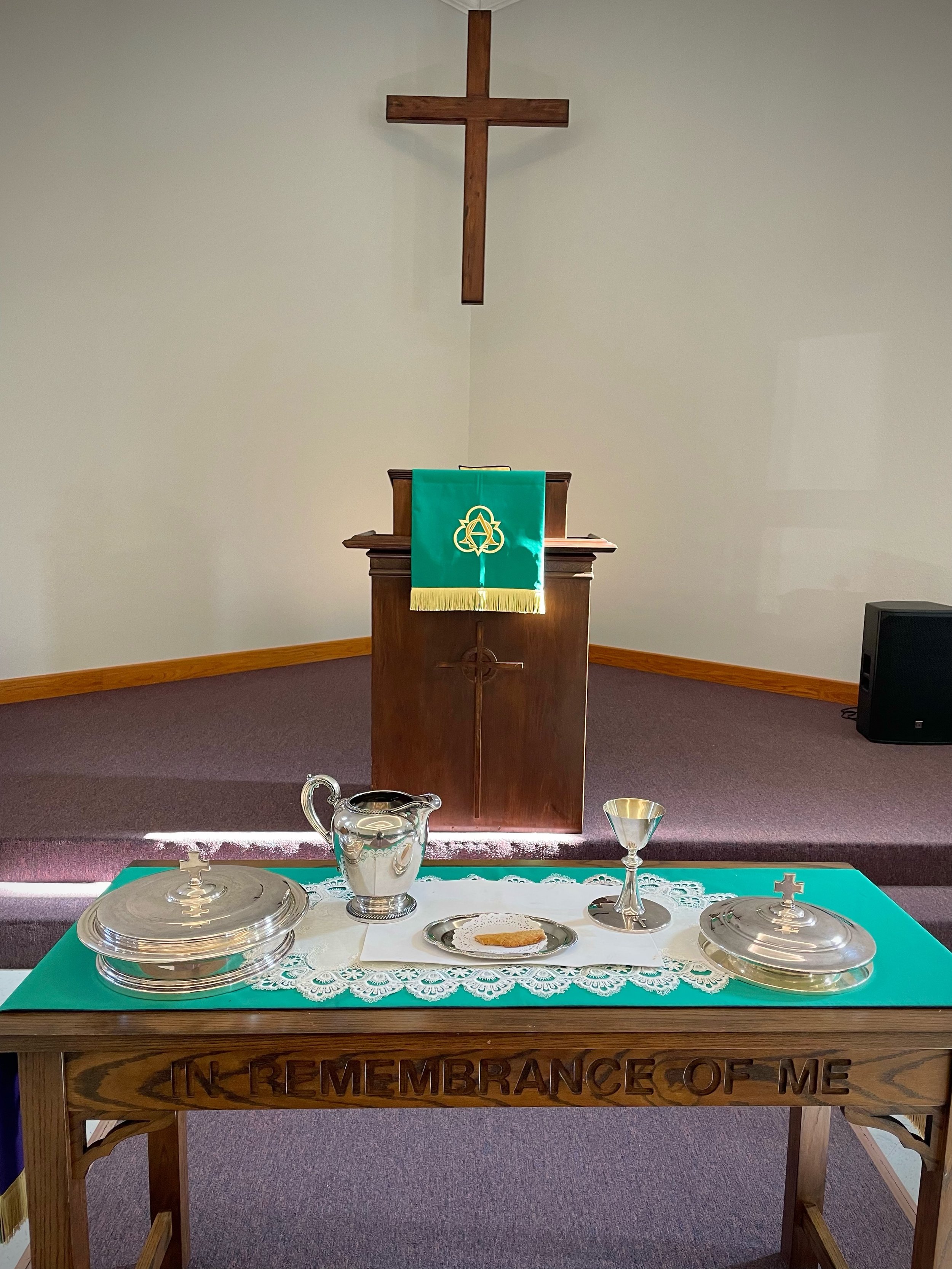Baptism
At Grace Covenant we believe baptism a sacrament and one of the two biblical requirements for Christian church membership. If someone comes newly to faith in Jesus who has never been baptized before, we require that they be baptized in obedience to Christ’s command at the time they join the church. A common misconception about Presbyterian churches is that we do not baptize those who come to faith in Christ. Rather, we baptize all who come faithfully to Jesus by the gospel, but not if they have previously been baptized in the name of the Father, the Son and the Holy Spirit. In other words, we do not re-baptize.
In addition, we believe that the scriptures teach that we are to administer baptism to the children of believers (commonly referred to as “infant baptism”). The Westminster Shorter Catechism # 95 states, “Baptism is not to be administered to any that are out of the visible church, till they profess their faith in Christ, and obedience to him; but the infants of such members of the visible church are to be baptized.”
In Peter’s first sermon, he taught the continuation of the covenant to all who believe and to their children (Acts 2:38, 39). Since children bore the covenant sign and seal (Romans 4:11) of circumcision in the OT that was replaced by water baptism in the NT (see Colossians 2:11, 12), they too are to take baptism even before they come to actual faith in Jesus. This action is the perfectly illustrated in Paul’s teaching, “But God demonstrates his own love toward us in this: while we were still sinners, Christ died for us” (Romans 5:8). Even before we were conceived, Jesus had done all that was necessary for our salvation, so too, in the baptism of infant, Jesus’ work is signified to them but sealed in the future when they come to Christ by faith.
This being said, we do not believe that baptism creates in, or confers the grace of salvation to, any child (or adult). We also do not believe baptism washes away sins. Rather, salvation comes only through trusting in Jesus and the merit of his work done on the cross credited freely to all who know him.
If you are interested in having your little ones baptized at Grace Covenant, here are some practical guidelines that we hope you will find helpful.
Normally, at least one parent should be a member at Grace Covenant.
If you have questions about the scriptural grounds of infant baptism, the pastor will be happy to meet with you to help bring clarification and understanding.
An appropriate date for the baptism must be determined with the pastor.
The Lord’s Supper
There is enough variance concerning views on the Lord’s Supper that it is important to give some clarification as to what we believe. Most of the confusion surrounds two issues: whether or not communion is a sacrament or an ordinance, and to what degree the Lord Jesus is present in the Supper. At Grace Covenant we believe Communion is one of the two sacraments of the church and that there is a true spiritual presence of Christ in the Supper.
Along with water baptism, the Lord’s Supper is what we call a sacrament. Sacraments include five essential components:
It is a rite that was instituted by Jesus Christ personally during his life on earth.
It is a practice that Jesus commanded to be observed perpetually in his church until his return.
Material elements are employed which are signs of spiritual blessing. In other words, they are visible signs of an invisible grace.
The material elements used are seals and pledges of the grace they signify.
The sacraments show forth the central truths of the gospel and the benefits of the new covenant.
Only water baptism and Holy Communion meet the given historic-reformed definition. Some argue valiantly that foot-washing ought to be included, but we can find no biblical evidence that this was regularly practiced by Christians in the early church.
Points three and four above are the most controversial in the definition because these elevate baptism and the Lord’s Supper from mere symbolic ordinances to sacraments which are spiritual and taken as a “means of grace.” There is a real spiritual impact upon the Christian who faithfully participates in the sacrament that is a little mysterious but always applied by the Holy Spirit in accordance with the gospel of Jesus. The language borrowed in the definition “sign and seal” is found in Romans 4:11 as Paul describes the essence of a sacrament, “He (Abraham) received the sign of circumcision as a seal of the righteousness that he had by faith …”
We also believe there is a real spiritual presence of Jesus in the Lord’s Supper. Since Jesus’ body is locally present at the right hand of his Father but his Spirit – the Holy Spirit – has been sent to us here on earth, there can only be a true spiritual presence of Jesus in the meal. These together with Jesus’ emphasis in John 6 on his union with believers and from passages like 1 Corinthians 11:27-32 pressing the gravity of the meal, show us that the Supper is anything but a symbol of remembrance. This is in distinction from some who believe there is a real spiritual and bodily presence, and from others who say there is no presence at all. Though we cannot quantify the Lord’s real presence with the meal, we can say it carries the same mystery as our progress in sanctification. It is beyond understanding but always in accordance with the promises of God.
Since the Lord’s Supper is a sacrament and a means of grace, Christians ought not to disregard it but participate willingly and faithfully as often as it is served by the church. Our custom is to observe the sacrament of the Lord’s Supper every Sunday.


